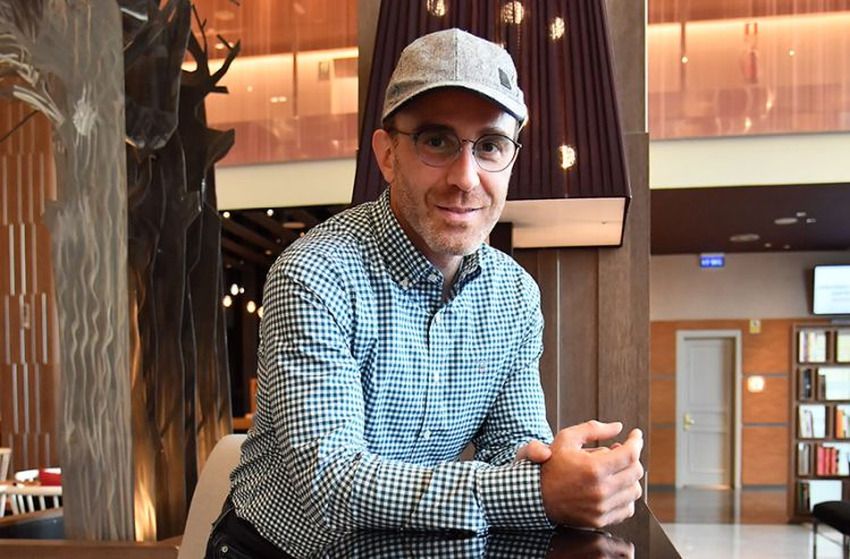
Israeli cultivated meat startup Aleph Farms has raised $29 million and expects to raise a further $10–15 million in the coming months as it unveils modifications to its core technology enabling it to make whole cuts with fewer steps at lower cost.
The $29 million comprises $22 million raised through a SAFE that has now converted plus $7 million from existing investors raised in the first closing of an ongoing round.
The capital injection will enable Aleph to expand production at its pilot facility in Israel and set up intermediate scale facilities in Europe and Asia, cofounder and CEO Didier Toubia told AgFunderNews.
“The funding will be used to scale up our pilot facility and launch the first Aleph Cut through an optimized production process designed for profitability and serving as a foundation for scaling the business globally.”
“We do not disclose our valuation,” he added, “But the entire sector is undergoing a correction, and like our peers, Aleph Farms is naturally adjusting its fundraising terms to align with 2025 market conditions. That said, this adjustment presents a compelling entry point for new investors. Meanwhile, Aleph Farms has successfully overcome all major challenges associated with cultivated meat, including regulation, product-market fit, profitability, and scalability.”
“The sustained confidence shown by existing investors is a clear indicator of Aleph Farms’ strength, execution, and potential to deliver relevant, scalable solutions for humanity’s most pressing challenges in a way that is profitable, capital-efficient, and responsible.” Jonathan Berger, CEO, The Kitchen Hub

97% reduction in production costs since 2020
One of the better-funded players in the nascent cultivated meat market, with backers including private equity firm L Catterton, food giant Cargill, and UAE sovereign wealth fund DisruptAD, Aleph Farms aims to differentiate itself with an initial focus on premium beef steaks rather than processed chicken products.
Tweaks to its process that remove costly steps and reduce media costs will enable it to achieve production costs of $14/lb at the 2,000-5,000-liter production scale, and $6-7/lb at large-scale, claimed Toubia.
To date, Aleph has been proliferating its cells (which grow in aggregates in suspension) in one bioreactor and then transferring them to a second bioreactor where they are seeded onto plant-based scaffolds and mature into fat and muscle cells to form its signature thin steaks.
With its new “1.2” approach, Aleph ditches the second step and triggers its cells to partially differentiate into fat and muscle in the first bioreactor by altering the media composition. It then harvests the cells and adds them to a plant protein matrix, Toubia explained.
“We’ve developed a unique patent [pending] process to incorporate the cells into a proprietary plant-based matrix in a homogenous way with high throughput without growing them on a scaffold, which simplifies the production process and makes it much more scalable.
“Our optimized process is streamlined, utilizing a stirred-tank bioreactor for both proliferation and differentiation, enhancing efficiency while preserving product quality. This approach results in a refined cellular profile, ensuring that the final product maintains its full nutritional and sensory integrity. It is also more efficient, reducing differentiation time by 60%.”
A dramatic reduction in overall production costs
This approach also means that Aleph Farms can create thicker steaks, as it does not need to keep cells alive in a tissue bioreactor, said Toubia. “It’s a way to accelerate the development of our next product, which is a thicker cut.”
Aleph Farms has also “improved the efficiency of our process in terms of cell density, but also feed to food conversion rate, with a lot of work to ensure that the cells are using 100% of the feed and the growth medium, as well as ensuring we have a zero-waste process,” he added.
“Our collaboration with BioRaptor, which uses data and AI to streamline and optimize bioprocesses, has been key to this. We’ve also signed new supply agreements to reach lower cost targets, and all this together has enabled us to dramatically improve our efficiency, optimize the growth medium and drastically reduce our overall production costs.”
Regulatory and go-to-market strategy
Aleph Farms, which has a pilot facility in Rehovot, Israel, recently secured the regulatory greenlight to launch cultivated beef products in Israel.
However, it will need to amend its regulatory submission in order to secure approval for its revised process, said Toubia, who says additional regulatory submissions are progressing in Switzerland, the UK, and Thailand.
“We’re in the process of filing [the amended submission] in Israel so that we can launch in the next six months based on this new, optimized process.”
Aleph Farms acquired a facility and related assets from biotech company VBL Therapeutics in Modi’in, Israel, a couple of years ago, enabling it to produce larger quantities of meat in its home market after a retrofit, said Toubia.
However, the plan now is to produce for the domestic market from its pilot facility and then scale up at mid-scale facilities producing hundreds of tons in Europe and Asia in the next couple of years before entering the US market with slightly different technologies enabling it to reach the mass market, he said.
“The plant in Modi’in might play a role later on, but probably not in the immediate term because of the geopolitical risk in Israel.”
The mid-scale facilities in Europe and Asia, which Aleph intends to develop with partners via an asset-light strategy, “should lead towards breakeven and profitability,” said Toubia. “In Asia, we have already announced collaborations with BBGI and Fermbox Bio and continue to engage with key stakeholders to establish a robust, scalable production network. Then we have the phase three, where we enter the US with a gene edited platform and much larger production capacities of thousands and tens of thousands of tons per facility, which we could do for $6-7/lb.”
In this third phase, he said, “We will continue to have premium beef offerings, but we will also have additional products and other species, which will be more mainstream and accessible, and which will rely on gene editing.”
Partnerships
Asked about partnerships, he said, “In 2024 we signed four new commercial agreements, two in Asia, one in Israel, one in Europe, and we’re currently negotiating a fifth. So we have strong support from our corporate partners for bringing products to the market and supporting our products in the market.
“We’ve also done a lot of work with customers, chefs, restaurants, in Israel, Singapore, Thailand, and Europe, to refine the product positioning and verify the product market fit. We believe that in any new category, the companies that will lead that category are the ones that can deliver the right product at the right price with the right positioning, rather than the first to launch.”
Industry at a crossroads
The developments come at a challenging time for cultivated meat, with private funding almost drying up in 2024 with a couple of exceptions (here and here) and key players warning that the sector could struggle to survive without a massive influx of public money.
Political sentiment is also souring in the US, with several states either banning cultivated meat (Florida, Mississippi, Alabama) or seeking to, while HHS secretary Robert F Kennedy Jr. has made it clear he’s not in favor.
AgFunder data shows that funding for cultivated meat startups peaked at $989 million in 2021, dipped to $807 million in 2022 and then fell to $177 million in 2023. Worryingly for startups in the space, things did not pick up in 2024. AgFunder data indicates just two notable rounds in the sector (Mosa Meat’s $43 million raise in April and Ever After Foods’ $10 million raise in June) and undisclosed rounds for Hoxton Farms, Meatly and Meatosys.





